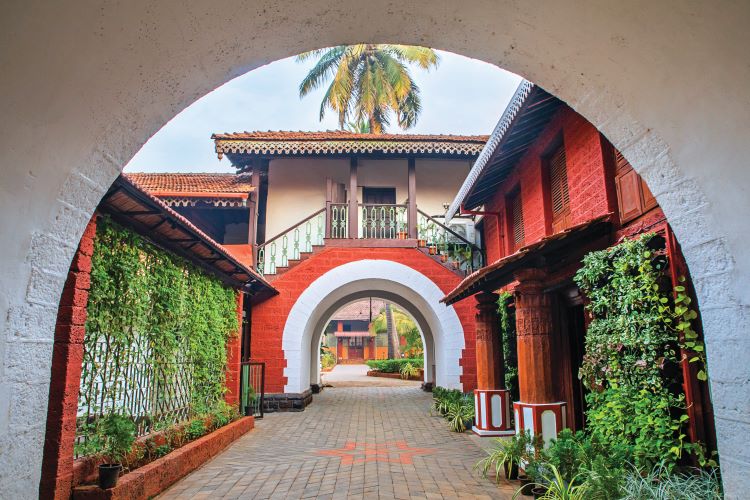Pilfering has become regular occurrence in hotels giving hoteliers a hard time to surmount the problem. As a result, they have put multiple measures in place to deal with it.
Ananya Kukreja
Guests stealing hotels’ items from rooms or common areas pose a real and complex problem for the hotels that includes dealing with human emotions of the travellers that are caught stealing, either by mistake or deliberately. Often the travellers are embarrassed, feel humiliated and pick a fight with the staff. Dealing and defusing such situations is a challenge for the hotel staff. It requires tactfulness and strong communication so that a reasonable solution can be arrived at with minimal fuss.
Often guests stealing hotel items is a topic of conversation amongst the hotel staff, behind closed doors. A recent video on Twitter of an Indian family that stole almost all the items from their hotel rooms in Bali has gone viral, involving the public at large. The video shows piles of hotel items being discovered from their luggage. It has sparked a campaign against the family that is ‘supposedly’ well off and educated.
This kind of incident is not new. A Hindustan Times’ article discusses journalist Vir Sanghvi recollecting having a conversation in 1980s about a famous actor being caught stealing hotel items or Indian Prime Minister’s media coterie raiding the mini bar and expecting not to pay for the items.
Clearly, guests stealing from hotel rooms is inevitable. As a result, hotels have put in place robust systems and standard operating procedures to reduce/tackle the problem.
Big hotel chains have significant working capital and account for this problem by replacing the items. This is necessary to ensure a standard and quality stay for their future guests. Dheeraj Kukreja, Vice President, MGM Hotels & Resorts, states, “The losses are insignificant and are generally witnessed when people travel in groups, attending either MICE or social events.”
A source that wishes to be anonymous, in a conversation with the author of this article, claims that frequently stolen items include cutlery, crockery, hair dryer, robe, towels and more, of these, about 12 per cent of the items are retrieved.
On the other hand, hotels with small inventory hotels, while facing similar problems, suffer lesser losses. Pradeep Shekhawat, Co-founder, Stotrak Hospitality, says, “As all our hotels are small inventory hotels, we do not face huge setbacks when it
comes to hotel items being taken away. However, the most common takeaways are bathroom and tea/coffee amenities.”
At the same time, hotels catering to theme-based travel—adventure, spiritual stays—face this issue at a smaller scale. Anoop Vijayaraj, General Manager, Kairali – The Ayurvedic Healing Village, Palakkad, states, “Ours is a unique resort, with many repeat customers. Though, we have very rarely encountered such situations we normally ask guests if they want us to procure any of the items they require.”
SOPs IMPLEMENTED
Considering that the hotels are aware of the problem, most hotels have Standard Operating Procedures (SOPs) that ensure that a mutually agreeable end result is achievable for both—the traveller and the hotel.
Foremost, hotels have a policy of counting room linens and items during the checkout by the guests so that any theft may be detected before it is too late. Says Shekhawat, “We have a policy of counting the linen on departure as that is the most expensive item available while the guests are settling the bills at the reception.”
Sanjay Sharma, Founder, All Key Solutions and CEO, Organic Hideaways, says, “Our checklist is quite clear for our staff, such as induction to rooms and amenities available for the guest to check-out procedures for housekeeping team and special watch on scant luggage guests and wedding function guests.”
In case the hotel items are missing, the concierge staff will inform the guests right away when it is discovered that hotel items are missing. Vijayaraj, states, “As a SOP, we inform the guest about the lost item/company property. If it is found with the guest, we collect the item back or charge the guest for the same.”
Second, hotels rely on extensive network of CCTV cameras in all areas, including back of the house parking, staff entry and exit doors, loading and unloading spaces. In a recent read online, the author reminiscences a conversation with a hotel staff from Palazzo Versace Dubai who said that shortly after opening, they had to install security scanners as they were simply losing too many Versace-branded items.
Third, some of the hotels have initiated a RFID based chip-based inventory of expensive items. Generally, low ticket items such as stationary items are not marked and hotels are fine with the guests taking them. As per Condé Nast Traveller, hotels are increasingly swapping miniature single use plastic bottles to bottles bolted to the bathroom wall. Even the stationary, notepads and pens, offered by the hotels have been changed for thinner pads and cheap pens.
Fourth, in case of group travellers wherein hotels might skip checking the room before checkout, hotels trust their housekeeping staff to keep an eye out for any potential pilfering.
Open communication provides remedy
Open communication, gentle recovery and socialising amateur travellers in hotel etiquettes is the best solution to deal with this problem. Apart from SOPs that hotels follow to reduce the pilferage by guests, open communication between the hotel and the guests is critical to effectuate learning for guests to curb this social problem, especially amateur travellers—for it is often these guests that might be confused as to what is complimentary (counted by the hotels as overhead costs) and what is not complimentary, and therefore, not be taken.
One method of ensuring that guests are able to differentiate between complimentary and other items is to mention price of different items in a price card whether physical cards or online messages using automated business chat bots. Shekhawat tells Hospitality Talk that their hotels “mention pricing for minibar items. Tea/coffee maker items and toiletries are complimentary.”
Sharma says, “As a protocol, escorting staff give checking-in guests, an induction around the room and of its supplies and amenities as well as of the hotel so that they are aware of what is in their right to use as a package and what is chargeable.”
Kukreja told Hospitality Talk in the past, that some hotels used to explicitly mention that guest folders and bathrobes were not complimentary and therefore, not to be taken, however, “hotels are now more considerate and cautious about guests’ sentiments and try to avoid offending them as much as possible”.
Even after these measures, guests might still steal the items. In such cases, it is on the hotel staff to quickly detect and inform the management of the theft. Thereafter, it is obligatory that the management and guest relation staff is trained in handling customers that are discovered having stolen items. They may talk to the guests in private so as to avoid conflict and embarrassment to the travellers and gently recover the stolen items.
Lastly, it is also important for amateur travellers to educate themselves on travelling etiquettes. It is articles such as these and more that can help provide information in order to help travellers, travel better.
One realises that there is not a hard line between ‘Where Complimentary ends and Stealing begins’. Instead it depends on the communication between the guests and the hospitality partner. This serves both the guests embarrassment of being caught stealing and hospitality partners to avoid loss.










